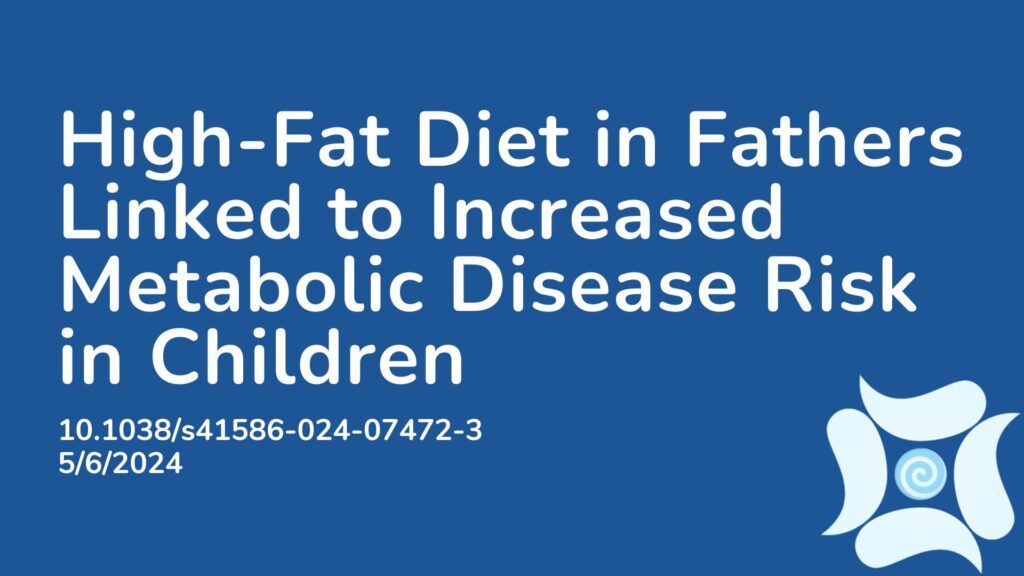Summary:
This study looked at the effects of a high-fat diet on sperm sncRNAs (complex molecules found in sperm) and offspring health, knowing that sncRNAs found in sperm cells can affect the development and overall health of the offspring. Data from over 3,000 families in the LIFE Child cohort were analyzed. The results showed that a father’s body weight influenced the weight of the children and increased their risk of metabolic diseases such as diabetes. The researchers also identified that these risks persisted regardless of the mother’s weight, genetics, and environmental factors. The research team then confirmed their findings in an experiment with mice, feeding them a high-fat diet. This affected the animals’ reproductive organs, the maturation of sperm, and increased the mice’s likelihood of metabolic diseases. To further investigate, the team performed additional laboratory studies. They created embryos through in-vitro fertilization (IVF). Using sperm from mice on a high-fat diet, they discovered that molecules from these sperm were present in early embryos, significantly influencing gene expression and affecting the development and health of the offspring. The study highlights the importance of a father’s health at conception for the metabolic health of offspring and shows that molecules found in sperm are affected by diet.
Abstract:
Spermatozoa harbour a complex and environment-sensitive pool of small non-coding RNAs (sncRNAs)1, which influences offspring development and adult phenotypes1,2,3,4,5,6,7. Whether spermatozoa in the epididymis are directly susceptible to environmental cues is not fully understood8. Here we used two distinct paradigms of preconception acute high-fat diet to dissect epididymal versus testicular contributions to the sperm sncRNA pool and offspring health. We show that epididymal spermatozoa, but not developing germ cells, are sensitive to the environment and identify mitochondrial tRNAs (mt-tRNAs) and their fragments (mt-tsRNAs) as sperm-borne factors. In humans, mt-tsRNAs in spermatozoa correlate with body mass index, and paternal overweight at conception doubles offspring obesity risk and compromises metabolic health. Sperm sncRNA sequencing of mice mutant for genes involved in mitochondrial function, and metabolic phenotyping of their wild-type offspring, suggest that the upregulation of mt-tsRNAs is downstream of mitochondrial dysfunction. Single-embryo transcriptomics of genetically hybrid two-cell embryos demonstrated sperm-to-oocyte transfer of mt-tRNAs at fertilization and suggested their involvement in the control of early-embryo transcription. Our study supports the importance of paternal health at conception for offspring metabolism, shows that mt-tRNAs are diet-induced and sperm-borne and demonstrates, in a physiological setting, father-to-offspring transfer of sperm mitochondrial RNAs at fertilization.
Article Publication Date: 5/6/2024
DOI: 10.1038/s41586-024-07472-3



